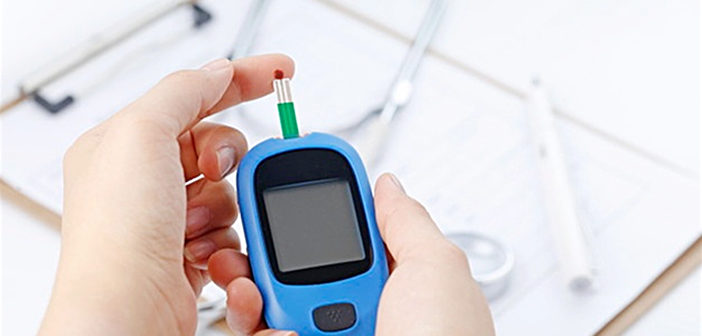Diabetes is a serious health condition. However, a sizable portion of diabetic patients remain undiagnosed.
According to the American Diabetes Association, out of the total population of adults with diabetes, around 7.2 million go undiagnosed. This is why it’s essential that you’re aware of your chances of developing it.
Aside from environmental and health factors, your genetic predisposition is a major clue as to whether you’re at risk.
If you have a family history of Type 2 diabetes, your chances of developing the disorder rise exponentially. But there is a silver lining to this statement.
If you have a family history and don’t already have diabetes, this gives you the opportunity to give your body the care it needs so there is no further risk.
Disclaimer: This information is to help you understand Type 2 Diabetes. However, if you need trusted medical guidance for a specific medical condition, we recommend that you visit a reliable medical professional or come to us for further instructions.
A Note on Types of Diabetes
There are two types of diabetes; namely Type 1 and Type 2 diabetes.
Type 1 diabetes attacks your pancreas through your immune system by affecting the cells that make insulin. Untreatable and unpreventable, a person has a greater chance of developing this disorder if they have a family history of it.
In many cases, a person may also develop the disorder if they’re exposed to a virus, for instance. Symptoms of Type 1 diabetes include weight loss, constant hunger, thirst, excessive urination, fatigue, and vision changes. With type 1, there is no way to prevent it.
However, Type 2 diabetes can actually be treated if one takes the right measures.
Preventing Type 2 Diabetes

The truth is; preventing Type 2 diabetes does not require that much preparation. In fact, just following a few basic tips can not only help you stay healthy, they can also protect you from developing other disorders.
For example, one of the main factors that increase your chances of developing Type 2 diabetes is your weight and diet. Obesity and an unhealthy lifestyle can increase your chances of developing it. As such, the first steps you must take is improving your diet and increasing physical activity.
A good workout and better diet lowers your blood sugar levels, and improves your body’s sensitivity to insulin along with help you lose weight.
In addition, a healthier diet—one that’s high in fiber and low in artificial sugar—lowers your risk of developing heart issues, improves your blood sugar levels, improves your digestive functions, and helps you feel full even if you’ve had a smaller meal.
Swapping sodas and drinks with a glass of water cuts back on unnecessary calories and limits excessive sugar intake, which in turn leads to a healthier weight and maintained blood sugar levels.
The Difference between Diabetes and Pre-Diabetes
When learning about diabetes, it’s important to know the difference between diagnosed diabetes and a pre-diabetic condition.
Pre-diabetes is usually indicated by higher-than-normal glucose levels. Though it may not increase to a degree that would register as diabetic, it does lead to other health problems. Pre-diabetes can cause high cholesterol, higher levels of blood pressure, as well as nerve damage. However, this is not a permanent condition.
Nevertheless, if you do not make the right lifestyle chances to combat these issues, they can lead to type 2 diabetes.
Symptoms of Pre-Diabetes
As stated above, your blood sugar level will increase. The normal level of blood sugar is 5.6mmol/L. But if this increases to anywhere between 5.7mmol/L–7.0mmol/L, the patient may be diagnosed with pre-diabetes. In addition, other symptoms that may indicate a pre-diabetic condition include thirst, increased appetite, frequent urination and fatigue.
Now, one might argue that diabetic patients might also display such symptoms. However, alongside these, there are other indicators that can strengthen the case for pre-diabetes, such as:
- Itchiness
- Tingling and numbness in the feet and hands
- Slow healing cuts and bruises
- Recurring and frequent infections
- Blurred vision
- Boils
A Note on Family History
Keep in mind, even if you do not have a family history of diabetes, there is another factor which might put you at risk of developing diabetes; your upbringing.
Your diet and rearing can play a big role in determining your health in general. Remember, whereas genetics may influence your chances of developing type 1 and type 2 diabetes, any lifestyle influences will definitely have an impact on your risk of developing the latter condition.
For the sake of your health, if you suspect that you might be showing visible signs and symptoms of diabetes, visit your doctor as soon as possible.
Learning about Diabetes Self-Care
Educating yourself about diabetes and the self-care involved can greatly help you in making the right changes in your life, which can lead to a better outcome for your overall wellness and health!
Self-care for diabetes involves a lot of lifestyle and dietary modifications which—when supported by a trusted healthcare staff—can help you in achieving a greater level of self-confidence, which can lead to a much more successful and effective behavioral change.
Going to a Professional
If you suspect that you may have diabetes, seeing your doctor and health care team regularly is an essential part of keeping your blood sugar under control.
How often you need to schedule those appointments however depends on how well you manage your diabetes. Understanding the early and sometimes, unusual signs and knowing your family history can help you know when it’s time to see the doctor about diabetes.
You can also get a specialized self care /education plan by scheduling a consultation to discuss a Pre Diabetes Self Care or Diabetes Prevention Program offered by Seva Life.
A certified health coach can guide you in the right direction and support in making sustainable healthy change.
For any details on diabetes, come to Seva Life and let us help you in preventing diabetes.




